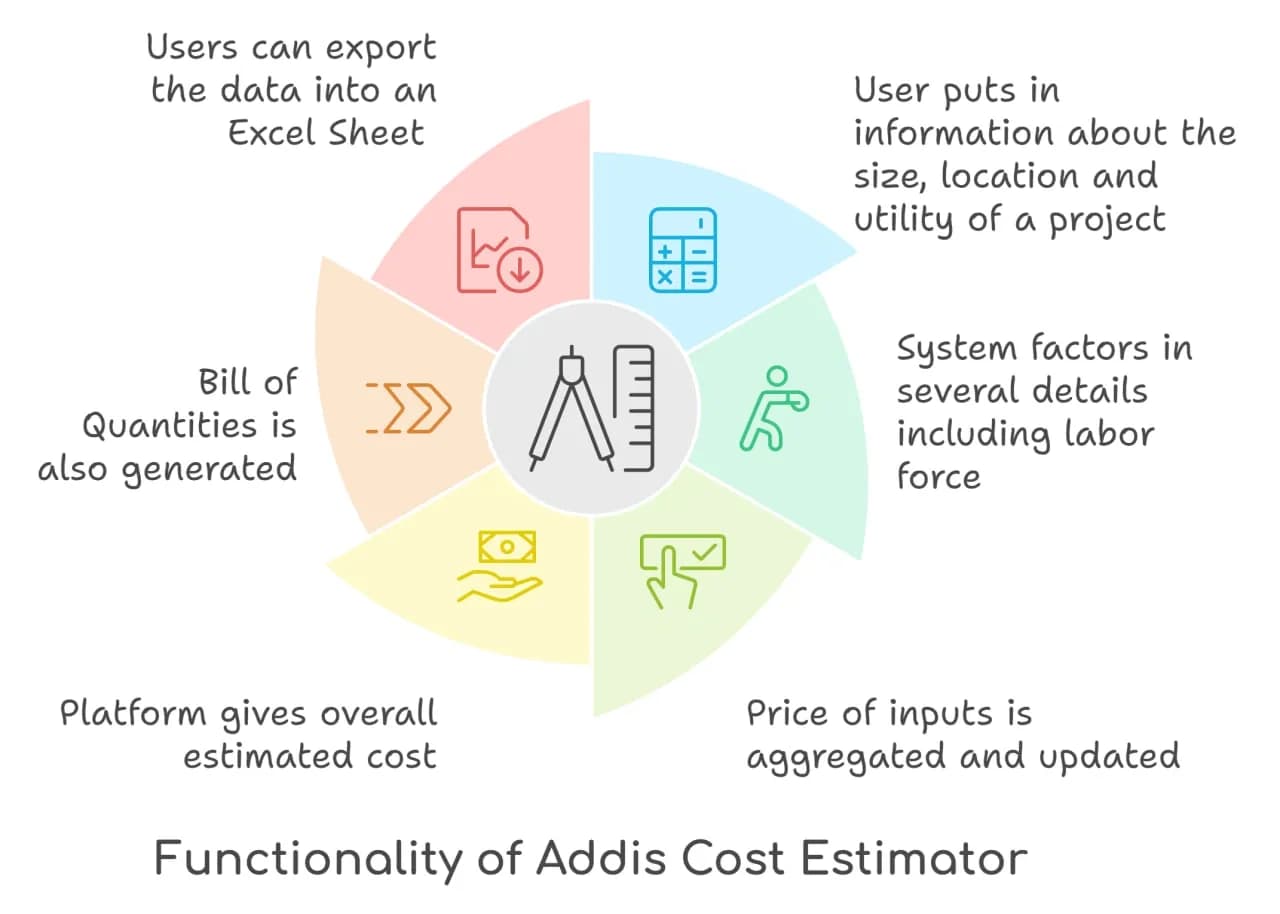Progress for 0 ad
Progress for 1 ad
Progress for 2 ad
Progress for 3 ad


Daniel Metaferiya
Addis Ababa, Ethiopia

An Ethiopian engineer has launched a platform that looks to bring some order into the chaotic cost assessment that precedes most construction projects. Meacha Teshome, debuted addiscostestimator earlier in the month, which aggregates prices for essential construction inputs to calculate overall costs of projects.
The Bahir Dar University alumnus expects the Platform to decrease the hassle of price discovery in developing a Bill of Quantities (BoQ) list for construction projects. BoQs enable a detailed construction budget forecast through a comprehensive listing of inputs and costs before building commences.
“Everything up to finishing materials like ceramic and windows is calculated,” Meacha told Shega.
The Platform relies on information about the size, location and utility of a project to calculate price references on all the relevant inputs by scraping data from e-commerce sites and daily interviews with suppliers. Users can register through email for access to the Platform which churns out detailed Excel sheets of construction data.
Contractors and clients often enter into protracted disputes over project budgets due to a rapid surge in prices for most construction inputs in Ethiopia. Platforms like Mismar have launched their services over the past year looking to connect suppliers and buyers through a straightforward interface.
Meacha acknowledges how cost variability presents a key challenge on most construction projects rendering assessment of project expenses a complex endeavor for prospective builders. The Platform factors in several details including labor force and complexity of designs before providing a final estimate of total cost.
While developed initially as a graduation project using data from 2mercato.com , the Platform has been updated consistently to accommodate inputs from suppliers updating their prices in real-time. Data from e-commerce sites proved to be fickle at best due to the constant fluctuation of prices for most construction inputs.
“I now update every price fluctuation by maintaining contact with suppliers,” Meacha says.
Ethiopia’s construction industry has been plagued by input shortages, price variability and soaring costs over the past few years. While cement supply and distribution has been the subject of significant attention, inputs like steel and gravel have also been underserved by the market. The Ministry of Trade & Regional Integration (MoTRI) removed price control measures in its most recent attempt to bring order into the market.
Ethiopia Import statistics indicate that from March 2023 to February 2024 (TTM), Ethiopia bought 373 shipments of construction materials. 30 foreign exporters provided these imports to 170 Ethiopian consumers, representing a 73% increase over the previous 12 months. Most of Ethiopia's construction input is imported from Turkey, China, and India.
The founder of Addiscostestimator, underscores the importance of proper cost planning for timely completion of construction projects. He refers to the provision of comprehensive information for all stakeholders to enable interdepartmental cooperation, effective resource allocation and informed decision making.
“Lack of proper cost planning is one the main causes for construction delays,” he says.
Meacha, who was a trainee at ALX Africa attributes the skills used in building the Platform to the courses provided by the organization. He learned how to scrape pertinent information from websites during the training regimen.
The lack of centralized data and absence of modern quality controls are the main reasons why Ethiopia's construction industry needs significant technological assistance, according to the developer.
👏
😂
❤️
😲
😠

Daniel Metaferiya
Daniel Metaferiya is a writer, journalist and radio host, with a keen interest in technology. He follows developments in Ethiopia's startup ecosystem closely and is passionate about profiling unique MSMEs.
Your Email Address Will Not Be Published. Required Fields Are Marked *